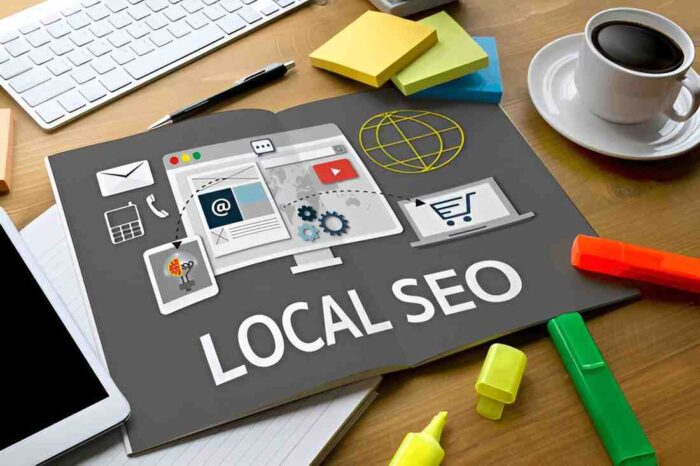When it comes to managing sales leads, one of the most critical decisions I face is how to identify which leads are worth prioritizing. Not all leads are created equal, and that’s where lead scoring software comes into play. Lead scoring helps to rank prospects based on their likelihood to convert into customers, enabling me to focus my efforts on the most promising leads. In this article, I’ll dive into some of the top lead scoring software options available today, compare their features, and highlight how they can help me make data-driven decisions to boost sales efficiency.
What is Lead Scoring?
Before delving into the software itself, it’s essential to understand the concept of lead scoring. Lead scoring is the process of assigning a numerical value to each lead based on their behavior, demographics, and interactions with my brand. For example, a lead who frequently visits my website, engages with content, and downloads resources is likely a higher-quality lead compared to someone who has only visited my site once. Lead scoring helps to identify these nuances, allowing me to focus on those most likely to convert.
The Role of Lead Scoring Software
Lead scoring software automates the process, making it easier to assess the quality of leads at scale. With the right tool, I can assign different values to actions such as email opens, website visits, social media interactions, and more. This software makes it possible to focus my time on leads that are more likely to result in sales, thereby increasing efficiency and productivity. It’s not just about closing more deals; it’s about closing the right deals.
Key Features to Look for in Lead Scoring Software
When evaluating lead scoring software, several factors come into play:
- Customizable Scoring Rules: I need the ability to set scoring rules that align with my business goals. A good lead scoring software should offer flexibility to adapt the scoring model to my unique needs.
- Integration with Other Tools: It’s essential that the software integrates with my existing CRM, email marketing platform, and other sales tools. This ensures that lead data flows seamlessly between systems.
- Data Analytics and Reporting: Detailed analytics help me understand lead behavior and adjust my approach. Software that offers strong reporting capabilities can help me visualize trends and make better decisions.
- Automation Features: Automation can save me time and reduce manual efforts in scoring and routing leads to the appropriate sales teams or representatives.
- Real-time Scoring: The ability to score leads in real time allows me to take immediate action. When leads engage with my content or show interest, I can respond swiftly.
- User Interface: An intuitive user interface helps me navigate the software with ease. A complex and cluttered interface can reduce efficiency rather than improve it.
Now, let’s take a look at some of the best lead scoring software options currently available in the market.
Top Lead Scoring Software Comparison
Here’s a comparison table to help you get a better understanding of some of the best options available:
| Software | Customizable Scoring | CRM Integration | Analytics & Reporting | Automation Features | Real-time Scoring | Ease of Use |
|---|---|---|---|---|---|---|
| HubSpot | Yes | Yes | Advanced | Yes | Yes | High |
| Marketo | Yes | Yes | Advanced | Yes | Yes | Medium |
| Salesforce | Yes | Yes | Advanced | Yes | Yes | Medium |
| LeadSquared | Yes | Yes | Basic | Yes | Yes | High |
| Pardot | Yes | Yes | Advanced | Yes | Yes | Medium |
| Zoho CRM | Yes | Yes | Basic | Yes | Yes | High |
HubSpot: Comprehensive and User-Friendly
HubSpot is widely recognized for its all-in-one marketing platform. I find it especially appealing due to its user-friendly interface and seamless integration with the HubSpot CRM. HubSpot allows me to create custom lead scoring rules, based on website visits, email engagement, social media interactions, and more. This makes it a perfect choice for businesses looking for a comprehensive tool to manage leads from multiple channels.
The reporting capabilities are robust, offering detailed insights into lead behavior, which makes it easier for me to identify patterns and make adjustments to the lead nurturing process. Additionally, HubSpot’s real-time lead scoring ensures that I’m always up to date on lead activities.
Marketo: Powerful for Larger Teams
Marketo, a part of Adobe, is a great option for larger teams that need advanced lead scoring capabilities. The software supports customizable lead scoring based on both demographic and behavioral factors. Marketo also offers strong reporting and analytics tools, giving me the insights I need to optimize my lead nurturing efforts.
However, Marketo can be a bit more complex and might require additional training to use effectively. The advanced features come at a cost, making it a better fit for mid-market to enterprise-level businesses. Despite this, its real-time scoring feature makes it a solid choice for those who need to act quickly on high-quality leads.
Salesforce: Best for Salesforce Users
If you’re already using Salesforce as your CRM, then integrating lead scoring within the Salesforce ecosystem makes sense. Salesforce offers robust lead scoring capabilities, with customizable scoring rules and detailed reporting. I particularly like the ability to track leads across multiple stages in the sales funnel.
While the software offers real-time scoring and automation features, its user interface can be overwhelming for new users. Salesforce is best suited for businesses that are already familiar with the platform and need a seamless integration of lead scoring.
LeadSquared: A Strong Contender for Small and Medium Businesses
LeadSquared is an affordable yet effective lead scoring tool for small and medium-sized businesses. It offers all the essential features I need, including customizable scoring, real-time updates, and integration with a variety of CRMs. LeadSquared shines in its simplicity, making it easy for teams without much technical expertise to start using it right away.
Though its analytics and reporting features are not as advanced as those found in some of the bigger players, it’s still a solid option for businesses that want a straightforward tool without all the complexity.
Pardot: A Marketing Automation Powerhouse
Pardot, by Salesforce, is another powerful option for lead scoring, particularly for businesses that also rely on Pardot for marketing automation. With Pardot, I can create customized lead scoring models, track prospect engagement across multiple channels, and automate follow-up tasks based on lead behavior.
While Pardot’s lead scoring features are powerful, the software is better suited to medium to large-sized businesses that need to manage a high volume of leads. The user interface is not as intuitive as other tools, which can make the learning curve steeper.
Zoho CRM: A Strong Value Proposition
Zoho CRM offers a combination of lead scoring, automation, and reporting features, making it an attractive option for businesses looking for value. It allows me to score leads based on a variety of factors and automates key processes to save time. The real-time scoring feature ensures that I’m able to act quickly on promising leads.
While its features are solid, Zoho CRM does not offer as many advanced reporting capabilities as other tools. However, for businesses on a budget, it provides a strong value proposition.
Choosing the Right Lead Scoring Software
Ultimately, the right lead scoring software depends on the size of your business, your budget, and the specific needs you have for lead management. If you’re a small business or a startup, tools like HubSpot or Zoho CRM might be more suitable due to their ease of use and affordability. On the other hand, if you’re part of a larger enterprise with more complex needs, platforms like Marketo or Pardot will likely offer the advanced features required to handle a higher volume of leads.
I always recommend considering factors such as ease of use, integration capabilities, and scalability when selecting a tool. The goal is to find a software that aligns with your lead management processes and enables you to focus on the highest-quality leads.
Final Thoughts
Lead scoring is a critical aspect of any sales strategy. By using the right lead scoring software, I can prioritize leads that are more likely to convert into customers, saving time and boosting sales. There are numerous options out there, each offering unique strengths. Whether you’re a small business or part of a larger team, there’s a tool that can fit your needs.
By using the information and comparisons I’ve provided in this guide, you’ll be able to make an informed decision and select the best lead scoring software for your business. After all, scoring leads correctly is not just about efficiency—it’s about ensuring that I’m working with the right prospects, leading to better sales outcomes.





